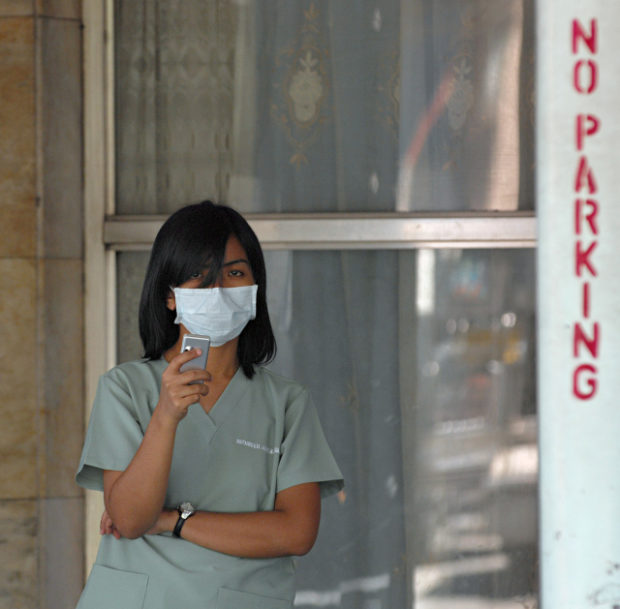Care home workers suffer COVID trauma, anxiety—study

While much attention was focused on the physical health of first responders and doctors, far less study has been given over to the mental well-being of the nurses, cleaners and caterers at care homes. AFP photo/Jaime Rius
Nearly half of care home workers in northern Italy may be suffering from post-traumatic stress or anxiety following the first wave of the pandemic, new research showed Wednesday.
As COVID-19 began its spread throughout Europe, northern regions of Italy — home to a high proportion of elderly people — were at the frontline as intensive care units were inundated with patients.
While much attention was focused on the physical health of first responders and doctors, far less study has been given over to the mental well-being of the nurses, cleaners and caterers at care homes.
Researchers in Italy and Britain conducted an anonymous survey of more than 1,000 care home workers to check their levels of stress and anxiety after months of caring for sick residents.
They found that 43% of respondents passed the symptom threshold for anxiety and PTSD.
“Due to the severity of the situation, we were expecting a reasonably high prevalence, but not as high as we found,” Elena Rusconi, from the University of Trento’s Department of Psychology and Cognitive Science, told AFP.
Overlooked
Authors of the research, published in the journal Royal Society Open Science, said care home workers had faced exceptionally testing conditions during the first wave.
Unlike emergency health staff, care home workers often form tight bonds with residents, making it all the more emotionally taxing when one gets ill or dies.
In addition, they had to manage communication with families who were unable to see their loved ones because of the virus.
The workers frequently lacked sufficient personal protective equipment and materiel for hygiene and safety protocols.
Rusconi said the research showed how governments and society at large often overlook care home workers, especially in times of crisis.
She said that care work required skill and dedication, yet often went underappreciated.
“They deal with a part of society that we don’t want to think too much about, perhaps from a sense of guilt,” Rusconi said.
Noting that “many (not all) care home staff in Italy come from abroad,” she added: “Although they may have resided in Italy for a long period and have citizenship, they originally came to take on a job that is, perhaps, considered undesirable and is certainly less esteemed compared to that of hospital doctors and nurses.”
As Europe braces for a resurgence of cases, the authors called for an “urgent in-depth assessment of the psychological status” of all care home workers. NVG
RELATED STORIES:
UK women and young people’s mental health worst-affected by the pandemic—study
For more news about the novel coronavirus click here.
What you need to know about Coronavirus.
For more information on COVID-19, call the DOH Hotline: (02) 86517800 local 1149/1150.
The Inquirer Foundation supports our healthcare frontliners and is still accepting cash donations to be deposited at Banco de Oro (BDO) current account #007960018860 or donate through PayMaya using this link.